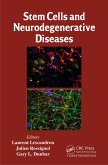The discovery that trinucleotide repeats significantly influence the age of onset and severity of a variety of hereditary neurological disorders has opened the door to a deeper understanding of the disease mechanisms involved, as well as to a more productive search for novel therapeutic interventions. In Trinucleotide Repeat Protocols, established leaders in trinucleotide repeat disease describe in step-by-step detail their best techniques for studying trinucleotide pathology at the molecular level. The protocols cover a variety of targets, ranging from DNA and RNA to proteins and whole animals, and focus not only on causal genes, but also on their consequent products, such as transcription factors, neurotransmitter receptors, proteasomes, and mitochondria/oxidation damage. Experimental systems employed include E. coli, yeast, C. elegans, mouse, and generally take a clinical point of view. The authors utilize a wide range of techniques, including gel electrophoresis, quantitative RT-PCR, immunological analysis, antibody usage and its applications, receptor assays using radioisotope handling, gene delivery by virus, brain cell and organotypic cultures, gender dependency, and neuron structure analysis. Each protocol follows the successful Methods in Molecular Biology(TM) series format, offering step-by-step laboratory instructions, an introduction outlining the principle behind the technique, lists of the necessary equipment and reagents, and tips on troubleshooting and avoiding known pitfalls. Cutting-edge and highly practical, Trinucleotide Repeat Protocols offers neuroscientists powerful tools to elucidate both normal brain function and the mechanisms of hereditary neurological disease, as well as to develop the next generation of therapies for neuronal genetic diseases.
Dieser Download kann aus rechtlichen Gründen nur mit Rechnungsadresse in A, B, BG, CY, CZ, D, DK, EW, E, FIN, F, GR, HR, H, IRL, I, LT, L, LR, M, NL, PL, P, R, S, SLO, SK ausgeliefert werden.









